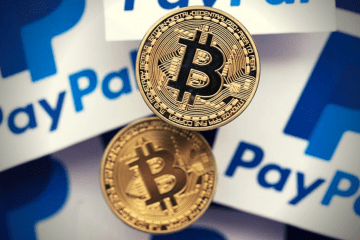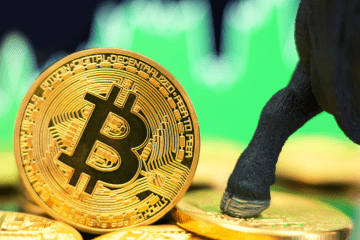Hedge Funds May Be Powering Bitcoin’s Second Big Rally
It may be hedge funds, rather than retail investors, that are driving this autumn’s rally in the price of Bitcoin.
And this time round, the institutional investors are buying exchange-traded products as well as the underlying cryptocurrency. A Bitcoin ETP managed by Swiss issuer 21Shares is receiving creations—the equivalent of inflows—of as much as $3 million a day. In November last year, it took all month to attract the same amount of new money.
Investors in Bitcoin ETPs are overwhelmingly institutions, rather than individuals.
“This is purely us targeting institutional investors,” Laurent Kssis, managing director at 21Shares, told Financial News. “Our business is focused solely on institutional investors’ mandate to add crypto to their portfolio strategies and we have not really touched the retail market yet.”
Many institutional investors sat on the sidelines when Bitcoin experienced its first dramatic rally in 2017—the cryptocurrency surged to $19,783 before collapsing to as little as $3,248 in late 2018. Money managers lacked a mandate to invest in cryptocurrencies and nervous compliance departments blocked requests to trade on unregulated cryptocurrency exchanges.
This year’s rally is different. A group of companies have listed Bitcoin-tracking ETPs, investment vehicles that mimic exchange-traded funds. ETPs are regulated, unlike Bitcoin, so hedge funds with a mandate to get exposure to cryptocurrencies can invest in the products, which are listed on stock exchanges.
The situation is similar in the US, where analysts say family offices and institutional investors have been ploughing into investment vehicles for Bitcoin in recent months.
Nikolaos Panigirtzoglou, a cross-asset research analyst at JPMorgan, said there is now “a greater urgency by institutional investors to not miss out — to invest some of their assets in bitcoin, because this time looks different.”
“The big difference to 2017 is that there is now greater conviction that bitcoin is a genuine asset class, that bitcoin will never go to zero,” he said. This has been prompted by a perception of Bitcoin as a credible alternative asset to gold, backed by corporate sponsorship from the likes of PayPal, MicroStrategy and Square.
“What is happening this year is that gold’s monopoly as an alternative asset is now being questioned,” he said. Instead over the past month, inflows into US-listed vehicles such as the Grayscale Bitcoin Trust show that “the institutional demand is so strong that even if some hedge funds or other funds that play bitcoin as a momentum trade get out, it’s not enough to stop the [price] ascent”.
The Grayscale Bitcoin Trust’s share price value on Wall Street at the start of October was $10.87, according to Nasdaq. As of Nov. 20, it has almost doubled to $19.94—and is still climbing.
Bitcoin has become an attractive asset class for U.S. funds that are known for investing in technology stocks, he added, saying that the bank has heard anecdotally that they’re all “familiar faces.”
“Many of them would have characterised bitcoin as fraud at the time three years ago. I don’t hear anybody calling bitcoin fraud at the moment.”
He added that he is often asked what might happen to those with stakes built up in Bitcoin if central banks decide to move against it, or release their own digital currencies.
“My answer is they can obstruct bitcoin [operating] as a payments currency, they can stop that, but they cannot prevent the perception of bitcoin as digital gold… At some point I think JPMorgan and other investment banks will have to make markets on bitcoin the same way they make markets on gold.
“It will happen, otherwise they will miss out on an important asset class. If they make markets on gold, why not in bitcoin?”
Source: barrons.com; fnlondon.com


